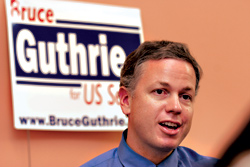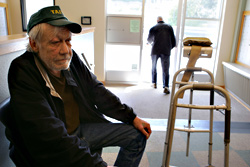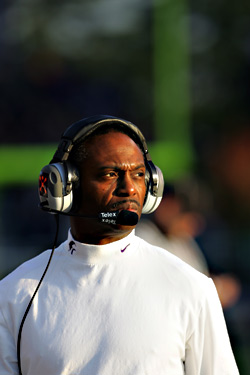What if gangs like the Crips and Bloods were put in charge of cobbling together police budgets? A loosely analogous situation is playing out in Seattle right now, minus the Glocks and doo-rags.
The dispute involves a fight over the Seattle Post-Intelligencer‘s reporting on the long-running culture of lax discipline in King County Sheriff Sue Rahr’s office. Rahr argues that she’s the victim of a veritable back- alley beating at the hands of the P-I and has turned to the Washington News Council for relief. At best, this self- appointed arbiter of media disputes can offer her little more than a lengthy examination of her alleged slights. But what’s come to light is that these very examiners of the media— long-suspected by journalists of being deeply biased—have such entrenched conflicts of interest that the News Council deserves a drubbing of its own, if not a .40 slug to the temple.
Founded in 1998 by current Executive Director John Hamer (a former Seattle Times associate editorial page editor and, later, a columnist for Seattle Weekly and the now-defunct Eastsideweek), the News Council’s purpose is to provide a dispute resolution process for individuals who feel they’ve been wronged by the media. The council’s board consists of 10 media members and 10 civilians, who are supposed to sit in judgment of disputed news coverage—yet offer little more than intellectual masturbation as their end product.
“We continue to wonder what problem the News Council is a solution to,” says Mike Fancher, Seattle Times editor at large.
The Cliffs Notes version of Rahr’s beef is that she believes the P-I‘s yearlong “Conduct Unbecoming” investigative series—which exposed how overzealous brutes with badges and detectives humping prostitutes often got slap-on-the-wrist discipline—was inaccurate, unfair, and painted the entire sheriff’s department as a corrupt organization. Among local journalists, the series is regarded as being filled with lots of fine reporting, principally by two-time Pulitzer Prize winner Eric Nalder and Lewis Kamb. After months of trying to work things out with the P-I, which stands by its series, Rahr filed a voluminous complaint with the News Council on July 28. Two weeks later, the P-I announced that it wouldn’t participate in a formal hearing regarding the gripe, preferring to respond to the sheriff’s allegations on its Web site.
In justifying the snub, the P-I reported that several News Council board members—Hamer, too—have made political contributions to the electoral campaigns of Sheriff Rahr and U.S. Rep. Dave Reichert, R-Auburn. The congressman is Rahr’s predecessor and is responsible for many of the departmental shortcomings outlined in the P-I series. Even worse, Hamer’s wife, Mariana Parks, runs Reichert’s 8th District office on Mercer Island.
“I just think for anyone to sit in judgment of journalism, you ought to hold yourself to the same ethical standards of the profession which you are judging,” says David McCumber, the P-I‘s managing editor. Most responsible media organizations bar their employees from making political contributions, especially to candidates whom they cover. Not so the News Council.
Another potential conflict: Eric Lacitis, a Seattle Times reporter, sits on the News Council’s board. And he’s supposed to evaluate a complaint against his employer’s main rival?
Hamer says that to expect public citizens to sit on such a board and not have political baggage would be to limit their First Amendment rights. He also says that the $350,000 the organization has received over the years from the Gates foundations (those of Bill and Melinda as well as William Gates Sr.) is an example of just how untainted the organization is. Yet allocating a few hundred grand to bird-dog the media is a far cry from the $287 million the Bill & Melinda Gates Foundation gave last month to speed development of an AIDS vaccine.
In its eight-year history, the News Council has only held three formal public hearings about alleged media misdeeds—and each time the media have refused to play along. Most recent was a 2003 hearing into a complaint stemming from a 2002 KIRO-TV investigative report, which alleged that a slaughterhouse was introducing sick and injured cattle into the food supply (station management called the hearing an invasion of its First Amendment rights). Other disputes have been resolved by a small panel of News Council members through a mediation process.
Yet if the media went along for the ride, what exactly would they get? Not much, aside from bad publicity. The News Council cannot order newspapers, for example, to run corrections or retract articles. Its rulings have the weight of a gnat.
The News Council claims that it’s just a bunch of citizens “who care about the media,” says Hamer, and want to educate the public about how the press works and hold it accountable. But maybe the council ought to hold itself accountable and rethink how it does business. Or simply disband.
As Bob Steele, a senior ethics faculty member with the Poynter Institute, a well-regarded journalistic think tank in Florida, puts it: “I think the concept [of news councils] has some merit. But the concept is often imperfect in its execution.”
No kidding.







